Judgment to empathy: I now know that my peers are not just attention seekers
North Penn High School senior opens up about bipolar disorder and the empathy it has taught him when it comes to the world and his peers dealing with an unsettled world of pandemic
First came the dreams. Violent, hideous, warped dreams would torture me night after night for days on end. I could hardly sleep for more than two or three hours, and I was afraid to even shut my eyes for a moment of rest. When they subsided, like the ocean pulling inward to meet the rising waters of a tsunami, the euphoria I felt was breathtaking to experience. Although nasty side effects like delusions, paranoia, bitter narcissism, violent outbursts, and psychosis accompanied perceived brilliance and hyper-productivity, I would never have traded the high I experienced for anything else in the world. As it is when one stands on that deserted beach to meet his maker in the face of the wall of water, the roar of the swell became deafening as the massive whitecap pounded me into the sand it had just previously left bare for all to see. An incredible and insurmountable depression ripped through my body and landed me in a partial hospitalization program after my visit to the emergency room. This is where I was first told I had Bipolar I.
The tidal patterns of the sea paint an apt analogy of the highs and lows of Bipolar Disorder because of the way they ebb and flow. Sometimes they are little more than a tickling at the toes, and sometimes they hit with the force of a storm surge. It depends on a variety of factors that present as pure randomness. The reason for the intensity of the first paragraph is not to add colorful commentary or to evoke any visceral reactions. I don’t want to burden anyone with this knowledge, but I would like to highlight the differences in my perspective from just a year before. In the past, mental disorders seemed far fetched. Everyone claimed they had one and most of them appeared to be attention seekers, riddled with confirmation bias, or incapable of helping themselves. Even if they were actually struggling, I couldn’t tell because the real cases were often hidden in dark corners of the mind that rarely ever presented themselves in public. At least, this is what I thought.
In the endless therapy sessions I received after my diagnosis, I came to learn that excessive vocalization of issues was a coping mechanism for a fairly large number of people. The people I dismissed as annoying and attention seekers were actually pleading for help and trying desperately to free themselves from the issues that clung to them. I found out that many people who struggle with many different kinds of mental disorders were trying to help themselves as much as I. Sure, there is always that one person who leverages his or her disability as an excuse or for granted privilege, but to stereotype and dismiss without ever trying to offer help became cruel and unusual punishment administered by me and most everyone else towards people completely innocent of any wrongdoing. My entire outlook on the subject of mental disorders changed quite rapidly. I went from believing everyone was a con artist to getting the tools I needed to help not only myself, but everyone who I believed had endured any pain or suffering regardless of condition. The scrooge-like turnaround also reached further into my daily life and rewired the way I think and address almost all situations: including the recent coronavirus.
I came to learn that excessive vocalization of issues was a coping mechanism for a fairly large number of people. The people I dismissed as annoying and attention seekers were actually pleading for help and trying desperately to free themselves from the issues that clung to them.
This message is for all the different factions of teenagers out there who have heard all the tired “we’ll-get-through-this,” “think-of-the-bonding-time,” “look-on-the-bright-side” jargon from every person and every media outlet. In full honesty, this situation is unprecedented and the waters un-navigated. We don’t know if we will actually pull through this. We don’t know if ‘bonding’ for some of our friends and neighbors, means being abused in their home and having to bear constant punishment. For many, there is no bright side. Some are drowning in deep debt after spending years building a small business or have little accumulated savings and can only barely purchase basic necessities.
Coronavirus conciliation has been about finding a silver lining in a physical or basic emotional way; working out, dieting, self-actualization, helping people with their groceries, writing on sidewalks, video-chatting with friends, and doing chores. The list goes on. These are amazing things to do no doubt, but we can also focus on a term that is seemingly absent in today’s society and in many of our minds at the moment: empathy. My experience with therapy has put me in a position where I had to empathize with others to understand, and connect with them. Those lessons were some of the most profound and ground-shaking moments of my life. So, here are some lessons and words of hope for my fellow high schoolers from a recently diagnosed Bipolar teen and transformed person who has been forced to count his blessings time and time again:
The social distancing required to fight this pandemic has taken a great toll on all of us. Lacking interaction with others, we each suffer different hardships according to our niche we inhabited in the high school culture. The stereotyped “popular kids”, with self-confidence, charisma, and many peers looking up to them, now may miss the respect, rapport, and connections they once experienced on a daily basis. Those who participate in sports are likely very restless now that their busy seasons and preparation for competitions with friends have been canceled. Walks got old after day 12, and shooting hoops or throwing balls against the pitchback are not enough to relieve the built up tension. All that excess energy may manifest itself as something more unproductive. Currently, shy or anxious kids might feel comfortable where they previously have not. While there have been some positive changes on that front, being torn away from close friends and confidants who provided a sense of security is hard. There could be anxiety over the current situation or over not feeling like there is a true support system if they fall. Student artists or writers may be experiencing a different pain right now because coming to terms with the fact that their niche may be a luxury is difficult. For anyone to be told that the font and structure of their creativity could be cut off, that learning new techniques and gathering new ideas must stop or barely flow at all, is heart wrenching. Smart people or academics are now forced to bear with the difficulties of online learning and having longer response times from teachers. They most certainly miss the atmosphere of the classroom, and feel like their learning may be stifled or are unsure of the future. Those AP tests are now much shorter and could feel harder because there is more pressure with time constraints. Or, they feel like a cakewalk that no one could possibly feel proud of. In both of these situations, these people will have to adapt to a new format from the one they were comfortable with or preparing for. Band and theater kids have worked so hard to prepare for their future performances, but now that the plays and concerts have been canceled, their spotlight has been unfairly removed. They are competent and willing, but the opportunity is no longer available. For all of the high schoolers that fell into these niches or any others, I recognize your pain. I also hope that the lessons I have learned may benefit you going forward.
While there have been some positive changes on that front, being torn away from close friends and confidants who provided a sense of security is hard.
Switching to a more direct and personal message: To those who were in the spotlight and then taken out when no one saw it coming, you are the ones that can empathize with the small business owners who, like you, had their work and respect swept out from under them with no warning. You can feel the anger of a job loss. For those of you with restlessness, empathize with the ADHD afflicted. Take time to understand the intricacies of how exuberance and energy can quickly mutate into different emotions like rage, hysteria, or intolerance. If you are shy or anxious, empathize with each other. Validate what you are going through and build a new safety net. Revel in the sanctuary of your home and the fact that you now are sharing the common perspective of millions of people across the globe. Creative people, please recognize that where we are as a culture and society was defined by people like you. The renaissance pulled us into modernity from nothingness (dark ages). Empathize with the creators who came up from less than perfect backgrounds to do great things. Their perseverance and faith were tested, but emerged unbroken. Just because you may not have as much inspiration or schooling as you did before, know that ideas don’t stop for viruses and neither should you.
Those of you who are learning online, empathize with the people that were mocked for doing the same thing. You get the unique experience of understanding the trials and tribulations of their lives. The rapid transitions to new formats are comparable to switching jobs or other major life changes. We persevere through all the hardships and audibles life throws at us. Kids with depression have done it. Kids with learning disabilities have as well. Even our parents have adapted for our sake. Recognize the lives of the selfless mothers and fathers juggling multiple jobs to support their families and the people around you entering a new chapter of their life. Those of you in the musical or performing arts, getting the motivation to practice without tangible (or audible) rewards and constant teaching is hard. Empathize with those struggling with the weight of depression who must deal with finding that motivation every day. Lastly, all of us in high school should better be able to recognize and empathize with the kids who have changed schools and were removed from their safe and familiar cliques as we have all built families of friends and teachers only to have them taken away. Empathize with those who are sick, frail, old, or abandoned. They need social interaction as much as us. If you found any commonality between who we might empathize with and what traits we share, you are starting to unravel the beginnings of empathy with and for each other.
When you are told in the first quarter of your senior year that all the classes you’ve hand picked after years of generic courses will be cut short, that all the things you wish you’d have seen and done for the first time in your life cannot materialize, that you cannot see the friends you had just made, that is a crushing blow to the teenage psyche. Many people are just now understanding the weight of this statement, but I have been dealing with its reality since the school year started. Depression robbed me of a life I should have had before coronavirus ever showed up. I was fighting for my family, now we are all fighting for our country, our sanity, and our collective lives. Validation of our feelings will only get us so far in navigating ourselves through this mess and to a solution. The takeaways from therapy that really elevated my thoughts and abilities to process my own emotions revolved around the concept that basic understanding of oneself is good, but not enough. A deeper and more complex layer of emotional awareness and revelation is found in the empathy we share with others. It is the understanding and sharing of feelings and experiences. We are all sharing an experience right now which tears down the barrier of individualism in current situations.
A deeper and more complex layer of emotional awareness and revelation is found in the empathy we share with others.
Now we are at a window where the planets have aligned and given us this opportunity. All we need to do is take the time to understand each others’ difficulties and feelings and we can connect with them and ourselves on a much more powerful level that can change the way we think and who we are. I was taught empathy in therapy as a means to cope with what I was going through, and in turn, it helped me be a more compassionate and understanding man. It made me recognize the beauty of life and the little things that feed into it. I still have a Bipolar Disorder that will persist throughout my whole life. Is it fair? Not any more or less fair than what is happening to all of us together right now. When I pulled up to the therapy program for the first time, I was scared. Much like the coronavirus, it was all uncharted territory. However, the novelty of the situation I had to adapt to terrified me more than the actual experience I had that first day. We are all mostly passed that first shock of the first day with this disease, so let’s begin the therapy together.


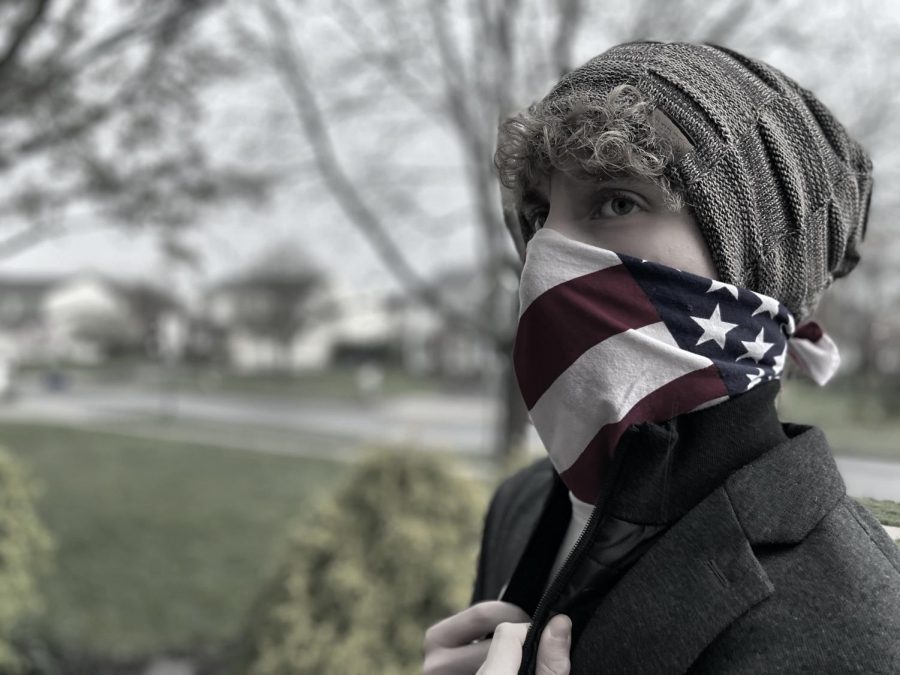


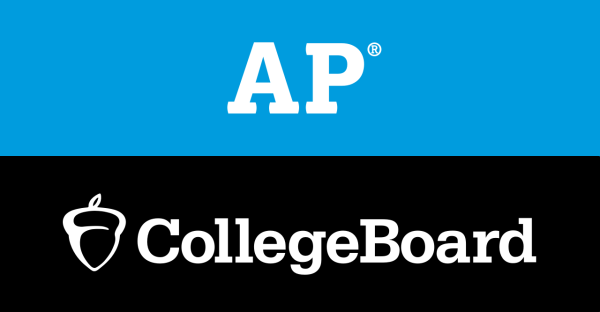
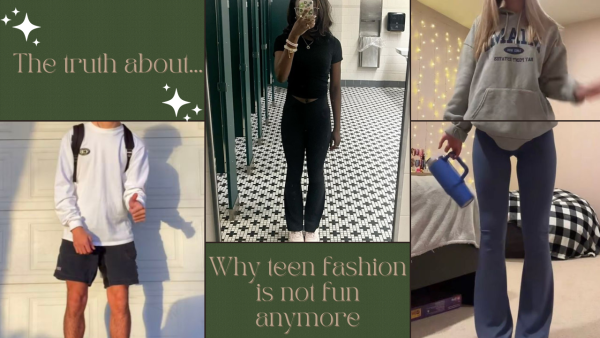

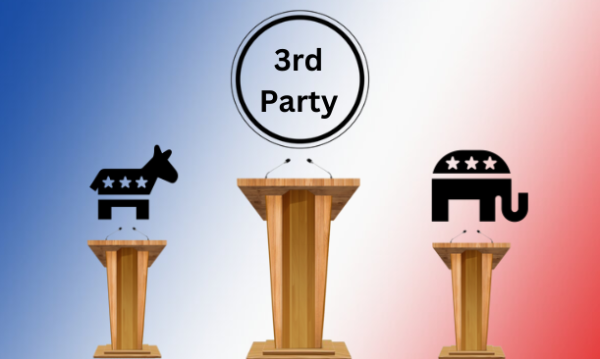
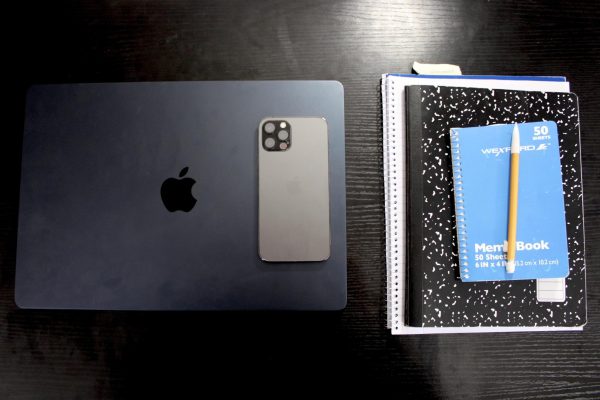
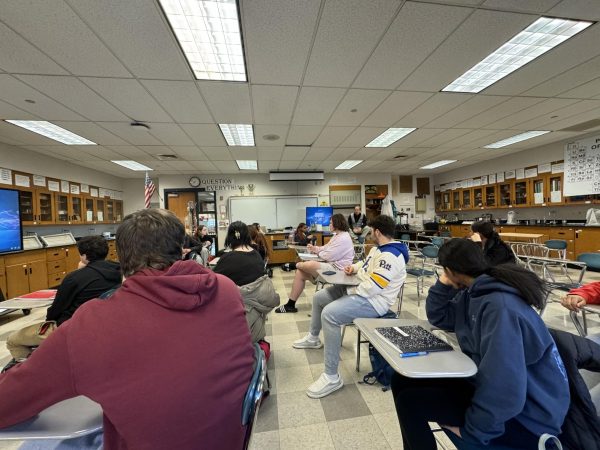
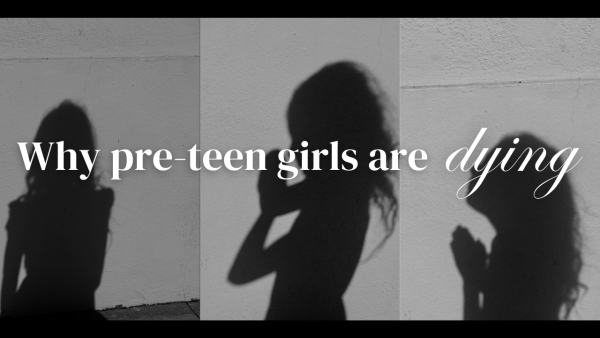
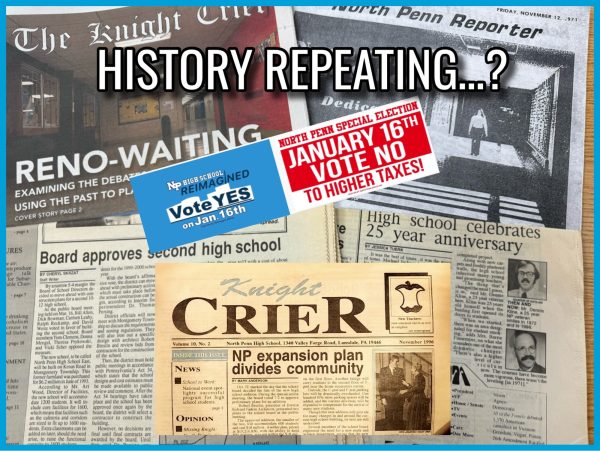
Anonymous • Nov 19, 2020 at 12:50 am
such a beautiful piece. truly a great person and an amazing writer.
Anonymous • Oct 29, 2020 at 6:08 pm
Jakob, as a fellow North Penn student suffering with bipolar disorder and a junior whose plans were disrupted and whose life was thrown into the abyss after hospitalization when she was far too young to learn the horrors of the adult world, I absolutely appreciate your reflection on yourself, your peers, and society today. This is an absolutely beautiful article, and I commend you for having the strength and sheer willpower for saying what needs to be said.
Karen Lindsay • Apr 27, 2020 at 8:37 am
Wow…so well written and explained in words and analogies that we can all relate to. Right on point in so many ways. Thank you for sharing yourself with others.
Michelle Darde • Apr 25, 2020 at 8:39 am
This was so beautifully said and inclusive of many different personalities and diagnosis. The empathy is heartfelt and conveyed with sincerity. Thanks for sharing…I hope it is read by many!
Emily Schurr • Apr 24, 2020 at 4:02 pm
Jakob, this article is so well written. It is very eye-opening and also, very true. Thank you for sharing your experiences and allowing people to empathize with you, people like you, and people all over the world right now. I hope you and your family are staying safe and healthy during this time. Thank you again.
Ainsley Lederer • Apr 24, 2020 at 2:34 pm
This is such a truthful and compassionate article. It brings to light how not only high school students, but adults and children alike feel like right now. Everything Jakob writes is a work of art, but this is a true masterpiece. Anyone who reads this will be able to relate in their own way, and take away a message that is so strong it will completely change the way they think. I know how hard Jakob worked on this, and it really payed off. Great job Jakob!
Sue Fasnacht • Apr 24, 2020 at 12:56 pm
So well said! Couldn’t be more proud of you!